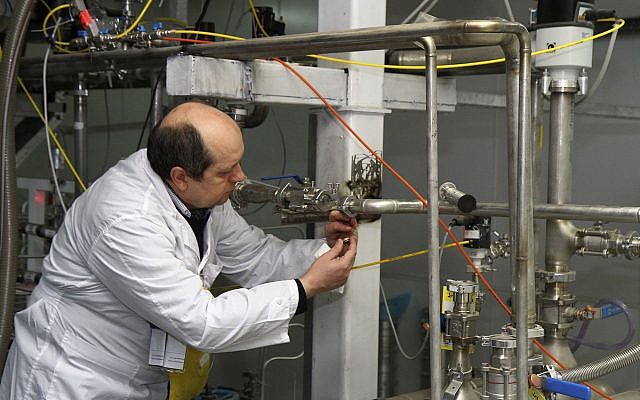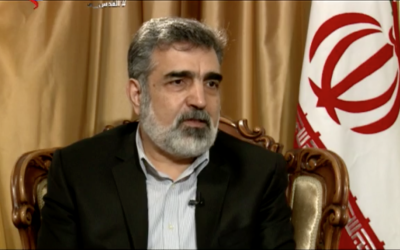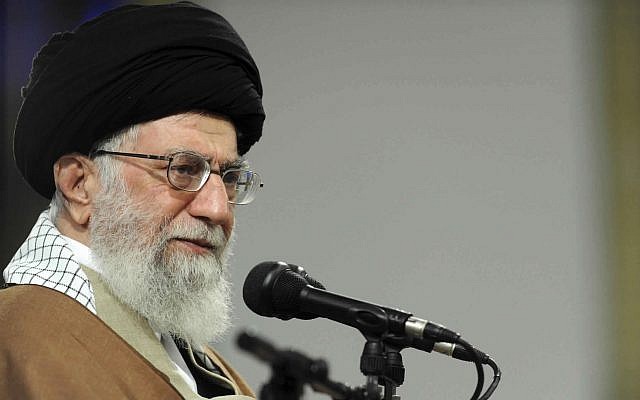Head of country’s atomic agency to inform IAEA of increased production of UF6 gas, meant to be injected into centrifuges banned from use under nuclear accord

The head of Iran’s nuclear agency said Tuesday his country is set to begin upgrading its uranium enrichment capabilities, hours after Tehran’s supreme leader ordered nuclear activity to ramp up and warned Europe it could pull out of the landmark 2015 nuclear accord.

Atomic Energy Organization spokesman Behrouz Kamalvandi told Iran’s state-run ISNA media outlet early Tuesday that the agency will inform the IAEA nuclear watchdog of its plans Tuesday to up production of UF6 gas, also known as uranium hexafluoride.
The gas is meant to be injected in the IR-8 centrifuge, which Iran says enriches uranium 20 times faster than machines used before the nuclear accord was signed. Under the deal, use of the advanced centrifuges to enrich uranium is not allowed.
On Monday, Supreme Leader Ayatollah Ali Khamenei said he had ordered atomic authorities to increase the country’s nuclear enrichment capacity.
He said the increase would not exceed limits set by the nuclear accord, which European countries have said they hope to salvage.
Iranians say research into using IR-8 centrifuges is allowed under the deal, to prepare for the sunset of the accord, which Iran has threatened may fall apart after the US pulled out last month.
“The leader (Khamenei) meant that we should accelerate some process … linked to our nuclear work capacity to move forward faster in case needed,” Kamalvandi said according to a translation provided by Reuters.
Under the terms of the agreement as issued in a fact sheet released by the US State Department after the nuclear accord was signed, Iran “will not use its IR-2, IR-4, IR-5, IR-6, or IR-8 models to produce enriched uranium for at least ten years. For ten years, enrichment and enrichment research and development will be limited to ensure a breakout timeline of at least 1 year. Beyond 10 years, Iran will abide by its enrichment and enrichment R&D plan submitted to the IAEA, and pursuant to the JCPOA, under the Additional Protocol resulting in certain limitations on enrichment capacity.”
Khamenei also warned European leaders Monday against their “dream” of Tehran continuing to curb its nuclear program while finding itself under new economic sanctions.
“From some European countries we get the message that they expect the Iranian people to both tolerate the sanctions, deal with the sanctions, and go along with them and give up our nuclear energy activities and continue with the restrictions,” he told an audience in a Tehran suburb.
“I would tell these countries that they should be aware that this is a dream that will never come true.”

Khamenei was speaking nearly a month after President Donald Trump announced the United States was pulling out of the landmark Iran nuclear deal.
The remaining partners — Britain, China, France, Germany and Russia — have scrambled to save the 2015 accord as the US readies to reimpose sanctions on Tehran.
Earlier on Monday, the head of the IAEA said Iran was complying with the agreement, but was slow when it came to opening sites for inspection.
As reported by The Times of Israel
